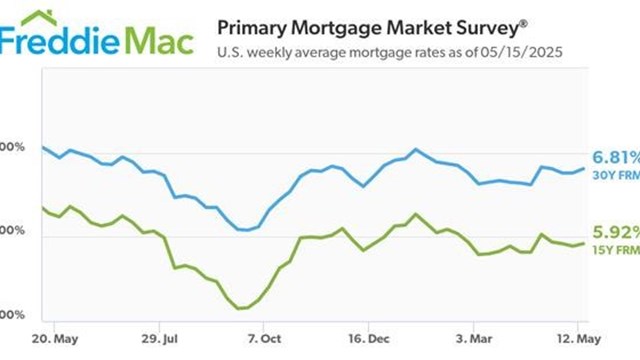The Chicagoland condominium market has weathered some extreme economic fluctuations since the financial crisis of 2008 - arguably more so than other large urban/suburban markets. One result of this is a higher number of condo properties exploring the option of converting from an ownership model to rental than in other markets. The process - sometimes called ‘reconversion’ - often involves the bulk sale of units.
In a bulk sale, an entire multifamily property is purchased for the purpose of converting the condominium units within it to rental apartments - either as-is, or converting and upgrading them. The move is permitted under section 15 of the Illinois Condo Property Act, says Sima Kirsch, an attorney specializing in community association law in Chicago, adding “The rules are very strict, and a board’s fiduciary duty requires homeowner involvement at every level until a vote is confirmed.”
Transparency is Key
As with any major financial decision, in a bulk sale conversion it’s crucial to avoid not just conflicts of interest in fact, but even the appearance of such. Kirsch suggests that any board member who falls into a category where the benefit of the bulk sale is greater to him or her than to other members should recuse themselves from discussion or voting on the matter. Similarly, if an attorney who represents the association also appears to be representing individual board members’ or owners’ interests, he or she should step aside from representing the association as far as the conversion is concerned. “In each of these cases,” says Kirsch, “the financial gain is enough to create the appearance of a serious conflict of interest for board members and the association’s attorney.” And that can lead not only to suspicion and bad blood between residents and their board, but to legal liability.
“Every effort should be made to follow a transparent and owner-supported procedure to avoid any appearance of a conflict of interest, disloyalty, or breach of duty,” continues Kirsch. “This impropriety can be avoided by following some simple suggestions.”
For starters, Kirsch says, “Although developers and sales agents can be overbearing and aggressive at times, they’re only the vehicle that brought it to your door. When an association falls into chaos, one can generally look to the board, manager, or attorney, for the outcome. That’s why, no matter who is in charge, it’s crucial to have a roadmap and to keep conflicts in check. The best place to start on any issue that’s critical to the association members, or that requires a member vote is with a survey - and in this instance, a due diligence document collection and building inspection.”
Diligence & Data
The purpose of the aforementioned survey is to determine the will of the majority of unit owners, under what conditions they would approve or reject a conversion to rental, and what, if any issues might arise in attempting to close the sales. Gathering that data will allow the board to make better-informed decisions on important initial parts of the process in an organized, practical manner. Other information gathered will help determine what a buyer should be willing to pay for the building, and assist the board in determining how the net sale proceeds should be allocated to maximize the odds of current unit owners voting in favor of the sale.
“Agreeing on how the net proceeds of the sale will be distributed is a significant issue,” says Kirsch. “For example, what if, after completing this preliminary work, it’s determined that the majority of residents are against selling? Better to learn that in the beginning than months later. False starts lead to wasted time, emotional energy, sometimes excessive costs, and conflict. On the other hand, the members of an association that’s financially underwater with massive capital repairs and replacements confronting them might relish the opportunity to sell,” says Kirsch.
What Should the Survey Look Like?
A pre-conversion fact-finding resident survey should include questions that address the following issues:
- If the unit owner is known, does the owner actually want to sell? Determining ownership may be difficult if the owner is deceased or incapacitated, or if the unit is owned by a lender.
- Does the owner have clear title to their unit? Any clouds on a title must be cleared to close.
- If a preliminary vote is reached, will the owner cooperate? A final vote of 75% vote must be reached for a bulk sale to proceed.
- What is the purchase price paid by the owner, and the cost of any significant rehab work to be done on the unit?
- What is the amount of the outstanding mortgage liens and other liens on each unit?
- If a unit is investor-owned and being rented to a tenant, financial information on that tenant should be gathered, including whether there are any delinquencies, defaults, or alleged defaults by the tenant, or any complaints or claims by the tenant.
Additionally, a due diligence inspection and document collection effort should include:
- Copies of all contracts and information on how long-term contracts will be handled, as well as any permits and licenses
- A building inspection and inspection of all units to determine any current work needed, as well as the remaining useful life and cost to replace systems and facilities like heating, HVAC, plumbing, etc.
- Any open efforts to obtain real estate tax reductions
- A current report of unit assessment payments, delinquencies, and the status of any collection efforts
- Balance sheets and financial statements for the last two fiscal years
- Information regarding open litigation, as well as disputes between the association and a third party or a unit owner, or between unit owners known to the association
Moving Forward
“After the information is organized, it should be shared with the members at an initial member meeting,” says Kirsch. A second meeting should then be held to address any issues that were overlooked, or that emerge after the first meeting. “A preliminary vote can be taken at this meeting,” Kirsch continues, “and if it seems that more owners than not are in favor of a sale, other meetings can be called to present owners with the terms under which the building would be sold, and how the net proceeds of the sale would be distributed. The offer should include a proposed form of sale agreement, which will be used to effectuate the transaction with the selected buyer.”
As in any transaction involving an entire community, the primary investment of most peoples’ financial lives is at stake in a condo deconversion, so the utmost care should be taken to maintain transparency and fairness throughout the process. That’s why it’s not only crucial for boards to involve residents in their decision-making, but to do their homework and enlist the help of qualified, experienced legal and financial professionals.










Leave a Comment